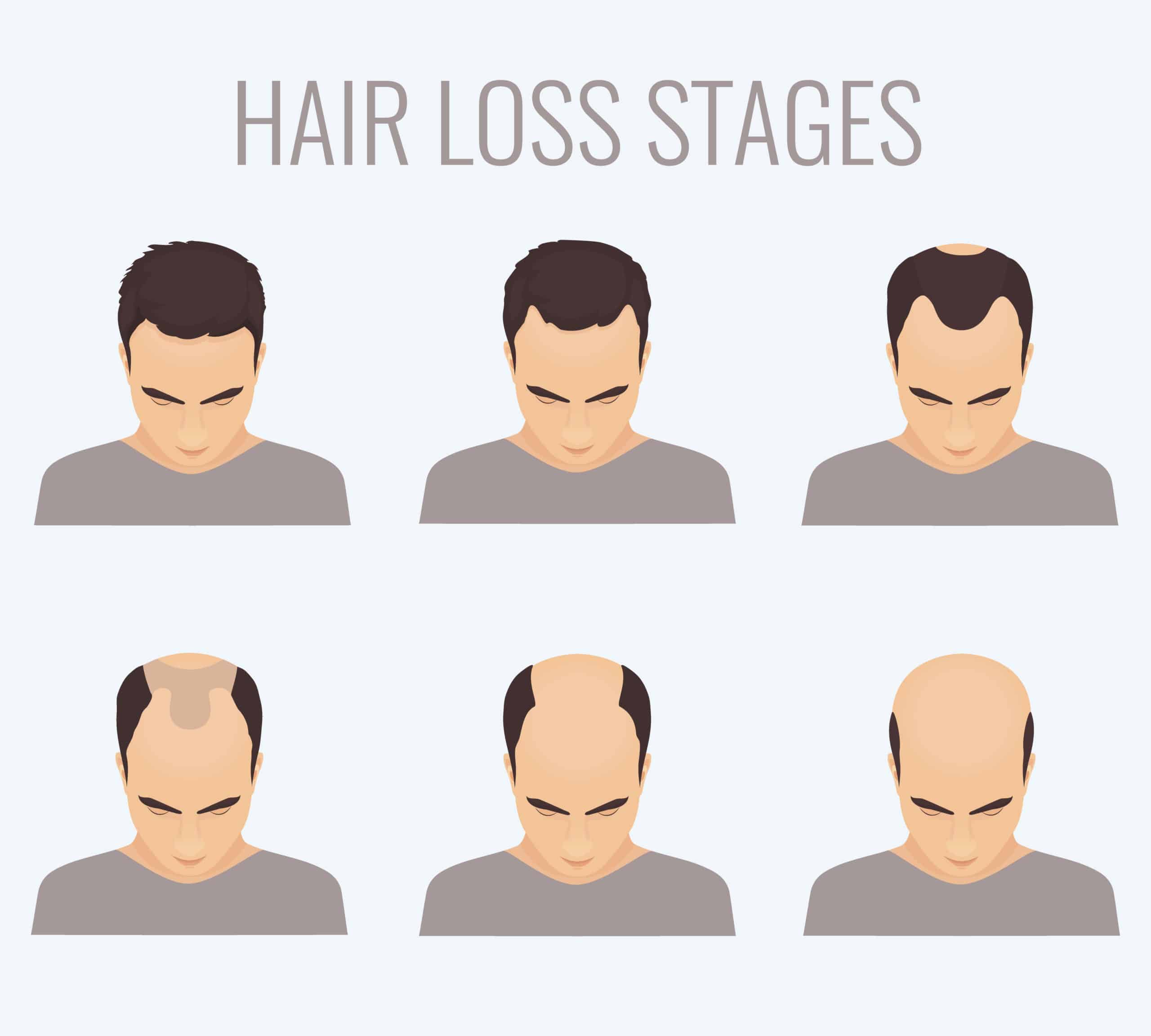The 23rd World Insights
Exploring the untold stories and events from around the globe.
Hair Today, Gone Tomorrow: A Closer Look at the Reasons Behind Hair Loss
Uncover the surprising truths behind hair loss and discover effective solutions to restore your mane in this eye-opening read!
Understanding the Science: What Causes Hair Loss?
Understanding the science behind hair loss is crucial for anyone experiencing this common issue. Hair loss can occur due to a variety of factors, ranging from genetics to environmental influences. One of the primary causes is androgenetic alopecia, commonly known as male or female pattern baldness, which is largely hereditary. This condition is characterized by a gradual thinning of hair, particularly at the crown or temples, often leading to baldness over time.
Aside from genetics, hormonal changes play a significant role in hair loss. Conditions such as pregnancy, menopause, and thyroid disorders can disrupt the natural growth cycle of hair, resulting in shedding. Additionally, lifestyle factors like stress, poor nutrition, and certain medical conditions can exacerbate the problem. Understanding these underlying causes is essential for developing effective treatment strategies and addressing concerns related to hair loss.

Myths vs. Facts: Debunking Common Misconceptions About Hair Loss
When it comes to hair loss, many individuals fall victim to prevalent myths that can cause unnecessary distress. One common misconception is that only men experience significant hair loss; however, statistics show that approximately 40% of women experience noticeable hair thinning by the age of 40. Additionally, some think that hair loss is solely attributed to genetics. While hereditary factors play a significant role, other elements such as hormonal changes, medical conditions, and certain medications can also contribute to this issue.
Another widespread myth is that wearing hats can cause hair loss. In reality, hats do not harm hair follicles or promote hair thinning. Instead, the factors that lead to hair loss are much deeper than a simple accessory. Furthermore, some believe that washing hair too frequently leads to loss; however, cleansing the scalp regularly actually keeps it healthy. In summary, debunking these myths can relieve anxiety surrounding hair loss while promoting a better understanding of the actual triggers behind it.
The Emotional Impact of Hair Loss: Coping Strategies and Support Options
Hair loss can have a profound emotional impact on individuals, affecting their self-esteem and mental well-being. Many people may experience feelings of embarrassment, anxiety, or even depression as a result of their changing appearance. Societal pressures regarding beauty often magnify these feelings, leading to a cycle of negative self-perception. It is essential for those dealing with hair loss to acknowledge these emotions and understand that they are not alone in their struggles.
Coping with hair loss involves adopting various strategies to help manage the emotional distress associated with it. Here are some effective options:
- Seek Support: Talking to friends, family, or support groups can provide a safe space for sharing feelings.
- Professional Help: Consulting a therapist specializing in body image issues may help in navigating complex emotions.
- Explore Hair Restoration Options: Researching treatments or hairstyles that boost confidence can empower individuals.
By utilizing these coping strategies, individuals can work towards reclaiming their self-image and finding acceptance.